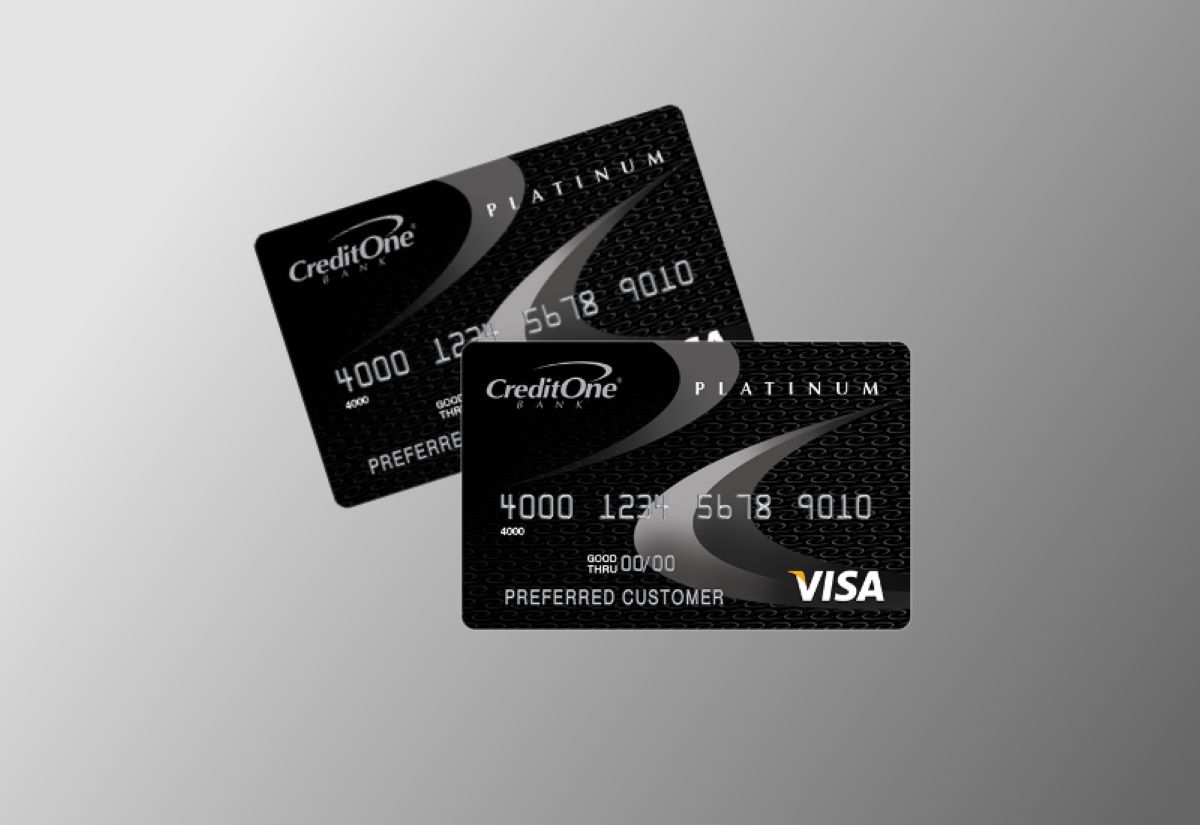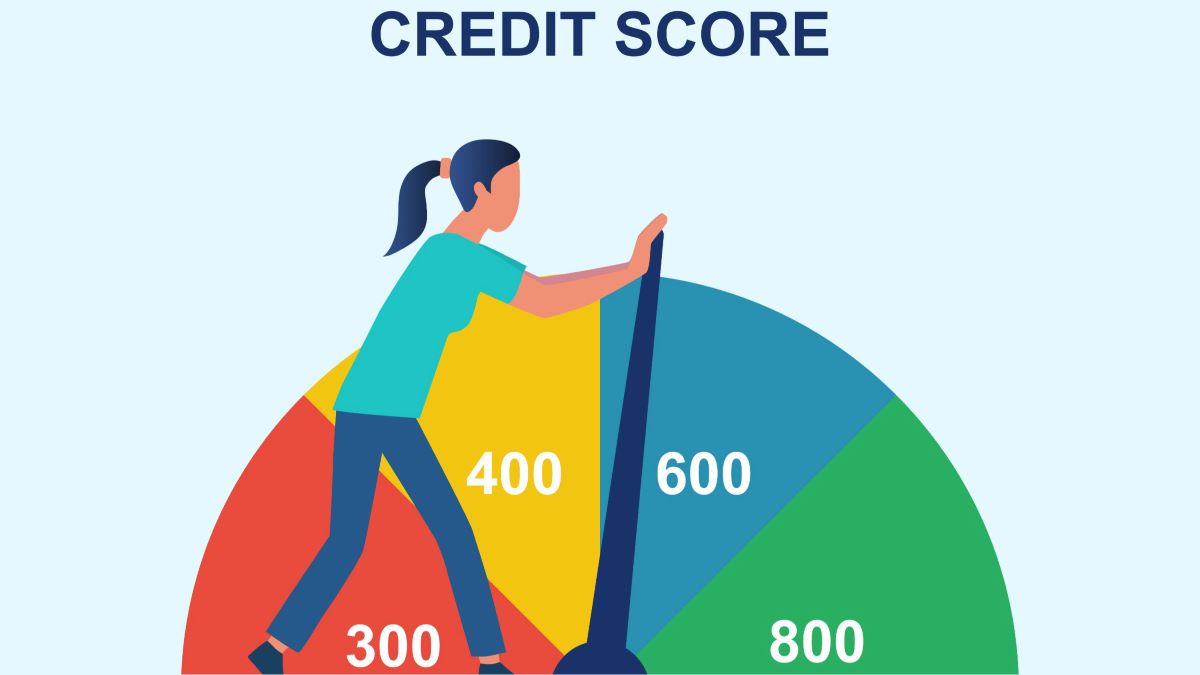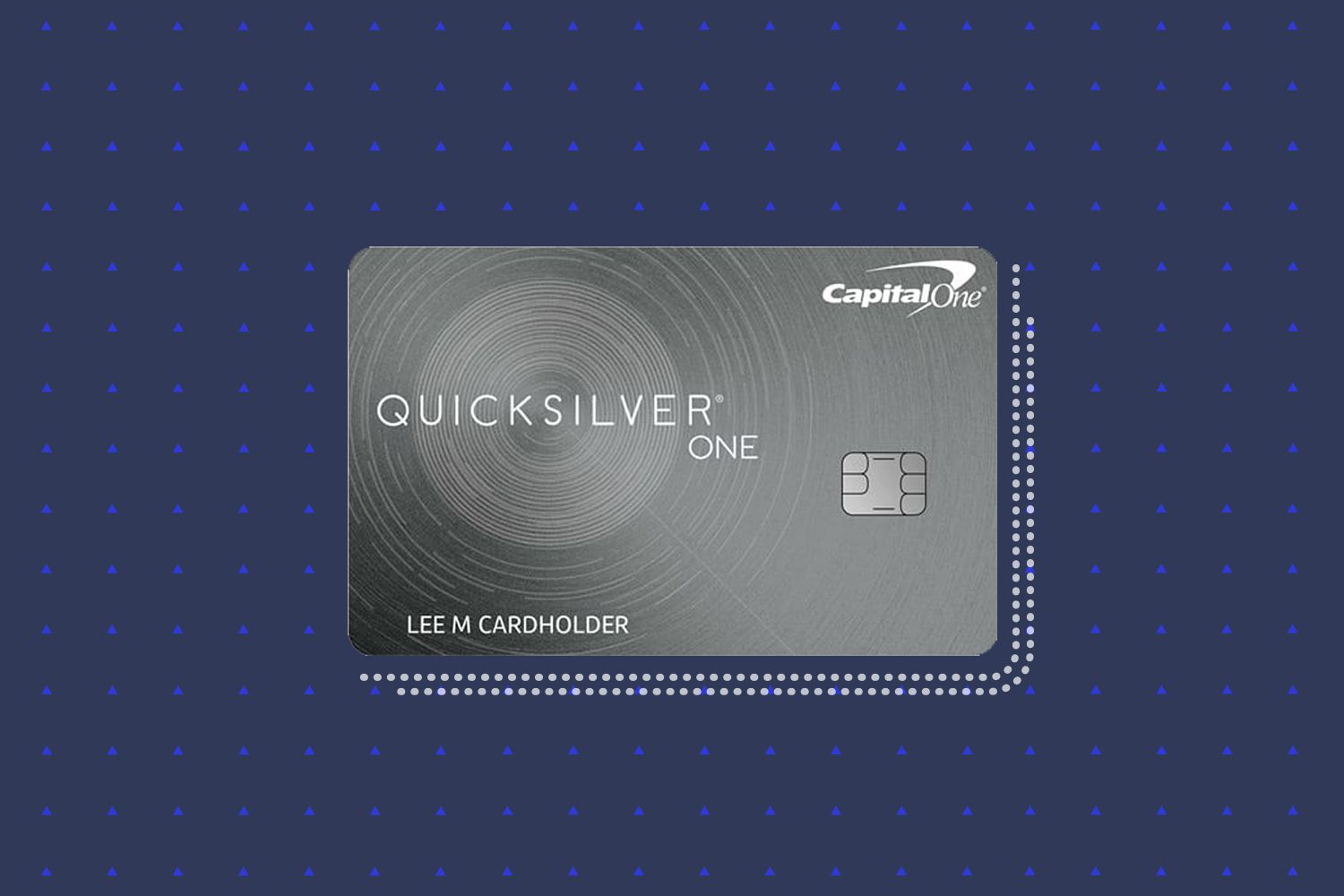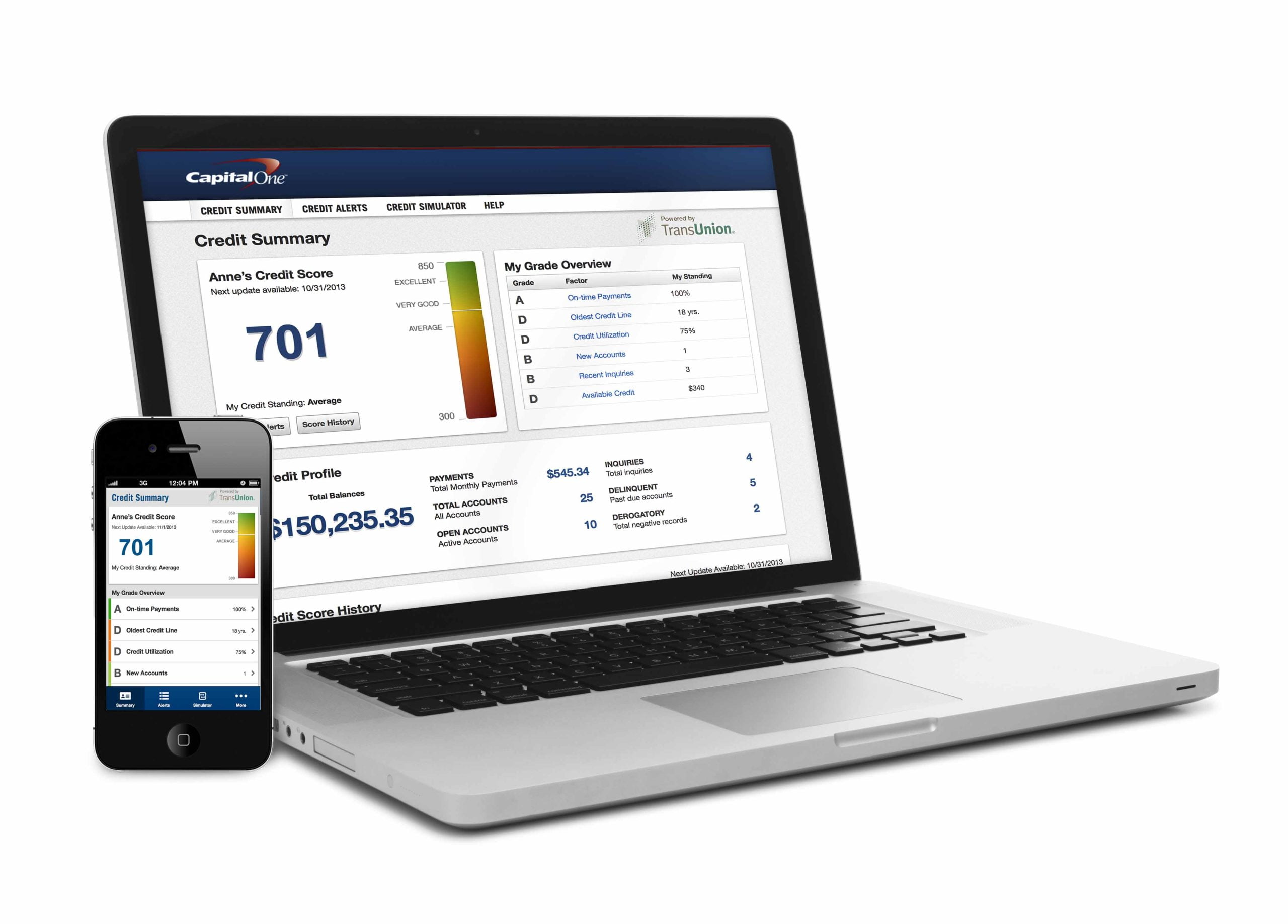

Finance
Who Does Credit One Bank Use For Credit Score
Modified: March 6, 2024
Discover who Credit One Bank uses for credit scores and how it impacts your financial health. Explore the role of finance in credit scoring.
(Many of the links in this article redirect to a specific reviewed product. Your purchase of these products through affiliate links helps to generate commission for LiveWell, at no extra cost. Learn more)
Table of Contents
Introduction
When it comes to managing your finances, one key aspect that lenders consider is your credit score. Your credit score is a numerical representation of your creditworthiness, and it plays a vital role in determining your eligibility for loans, credit cards, and other financial services. A good credit score can open doors to favorable interest rates and better borrowing opportunities, while a poor credit score can make it challenging to secure credit or may result in higher interest rates.
As a consumer, it’s essential to understand how your credit score is calculated and who the providers are. In this article, we will specifically explore the credit score provider used by Credit One Bank. By gaining insight into the credit scoring system used by this institution, you can make informed decisions about your finances and potentially improve your creditworthiness.
Founded in 1984, Credit One Bank is one of the leading banks offering credit cards to individuals across the United States. The bank aims to provide accessible credit solutions to a wide range of consumers, including those with less-than-perfect credit scores.
As we dive into understanding who Credit One Bank uses for their credit score evaluations, we will explore the factors considered in their credit score calculation and also discuss alternative credit score providers. Let’s uncover the mystery behind the credit scoring process used by Credit One Bank and how it can impact your financial future.
Understanding Credit Scores
Credit scores are a numerical representation of your creditworthiness and are designed to help lenders assess the risk of lending money to an individual. They are typically generated by credit bureaus or credit scoring companies, using complex algorithms that take into account various factors related to your credit history.
Most credit scoring models use a range of scores, such as 300 to 850, with higher scores indicating better creditworthiness. These scores are based on the information contained in your credit report, which includes details about your payment history, outstanding debts, length of credit history, and other relevant factors.
It’s essential to note that different credit bureaus may have slight variations in their scoring models. The most commonly used credit score models are FICO (Fair Isaac Corporation) Score and VantageScore. These models use similar criteria but may weigh different factors differently.
Factors that influence your credit score include:
- Payment history: This is the most significant factor and considers whether you have paid your bills on time.
- Credit utilization: It looks at how much of your available credit you are using. Lower credit utilization ratios are generally better for your score.
- Length of credit history: The longer you have a credit history, the better, as it provides more data for lenders to assess your creditworthiness.
- Types of credit: Lenders also evaluate the mix of credit you have, including credit cards, loans, and mortgages.
- New credit applications: Opening multiple new credit accounts within a short period may negatively impact your score.
Understanding how credit scores are calculated can help you take actions to improve your score over time. By maintaining a history of on-time payments, keeping credit card balances low, and avoiding excessive credit applications, you can work towards building a positive credit profile.
Importance of Credit Scores
Your credit score plays a crucial role in your financial life. It is not just a three-digit number; it has a significant impact on your ability to access credit, secure loans, and even rent an apartment. Here are the key reasons why credit scores are important:
1. Lending Decisions: When you apply for a loan or a credit card, lenders rely on your credit score to assess your creditworthiness. A higher credit score indicates that you are a reliable borrower, making you more likely to be approved for credit and receive better interest rates and terms.
2. Interest Rates: Your credit score has a direct impact on the interest rates you are offered. A high credit score can lead to lower interest rates, saving you money over the life of your loan. Conversely, a lower credit score may result in higher interest rates, meaning you’ll end up paying more for the same borrowed amount.
3. Rental Applications: Landlords often check credit scores during the rental application process to assess whether you are a responsible tenant. A poor credit score may raise concerns about your ability to pay rent on time, making it harder to secure a rental property.
4. Insurance Premiums: In some cases, insurance companies may consider your credit score when determining insurance premiums. They view individuals with higher credit scores as less risky and may offer lower premiums for auto, home, or other types of insurance policies.
5. Employment Opportunities: Although not directly related to your creditworthiness, some employers may check credit scores as part of the hiring process, particularly for positions that involve financial responsibilities. A poor credit score could potentially hurt your chances of securing certain jobs.
It’s important to note that credit scores are constantly evolving, and they can be improved with time and responsible financial behavior. By consistently making payments on time, keeping credit card balances low, and managing your debts wisely, you can steadily improve your credit score and enjoy the benefits of a healthier credit profile.
Credit One Bank’s Credit Score Provider
Credit One Bank, like many other financial institutions, partners with credit scoring companies to evaluate the creditworthiness of their applicants and cardholders. While the exact credit scoring provider used by Credit One Bank is not publicly disclosed, it is likely they utilize one of the major credit scoring models such as FICO Score or VantageScore.
FICO Score is one of the most widely recognized and used credit scoring models in the United States. It is developed by the Fair Isaac Corporation and is based on a range of factors, including payment history, credit utilization, length of credit history, types of credit, and new credit inquiries. The FICO Score ranges from 300 to 850, with higher scores indicating better creditworthiness. This model is trusted by many lenders to assess the risk of extending credit to consumers.
VantageScore is another reputable credit scoring model that was created jointly by the three major credit bureaus: Experian, Equifax, and TransUnion. VantageScore also evaluates similar factors as FICO Score and provides credit scores ranging from 300 to 850. However, the specific calculation and weightage of these factors may differ slightly from FICO Score.
It’s important to note that credit scores can vary slightly between different credit scoring models and credit bureaus due to differences in their algorithms and the information they use to generate scores. That’s why it’s a good idea to monitor your credit scores from multiple sources and understand how they may be perceived by lenders.
While the exact credit scoring provider used by Credit One Bank may not be disclosed, what matters most for individuals is not the specific provider but rather understanding the factors that contribute to a credit score and how to maintain a healthy credit profile. By focusing on building a positive credit history, making timely payments, and keeping credit utilization low, borrowers can improve their creditworthiness regardless of the specific credit score provider used by their financial institution.
Factors Considered in Credit One Bank’s Credit Score
While the exact credit scoring model and provider utilized by Credit One Bank are not explicitly disclosed, it is important to understand the common factors that financial institutions typically consider when evaluating credit scores. These factors provide insights into what may be taken into account when assessing creditworthiness with Credit One Bank.
1. Payment History: The payment history is one of the most crucial factors in determining creditworthiness. Credit One Bank, like other lenders, is likely to consider whether borrowers have made consistent, on-time payments on their existing credit accounts. Late payments, delinquencies, or defaults may negatively impact credit scores.
2. Credit Utilization: This factor refers to the percentage of available credit that a borrower is using. Keeping credit card balances low compared to the available credit limit is generally regarded as a positive indicator of responsible credit management. It is advisable to maintain a utilization rate below 30% to avoid negatively impacting credit scores.
3. Credit History Length: The length of a borrower’s credit history is an important factor considered by lenders. Credit One Bank may consider the duration for which the individual has had credit accounts and how long those accounts have been active. A longer credit history can provide more insight into the borrower’s financial habits and responsible credit management.
4. Types of Credit: Credit One Bank may also evaluate the mix of credit accounts maintained by potential borrowers. A diverse credit portfolio that includes credit cards, loans, and possibly mortgages can be viewed positively as it showcases the individual’s ability to handle various types of credit responsibly.
5. New Credit Applications: When individuals apply for new credit accounts or loans, it triggers a hard inquiry on their credit report. Credit One Bank, like other lenders, may take into consideration the number of recent inquiries and the frequency of new credit applications. Multiple inquiries within a short period could be perceived as a sign of increased credit risk.
It is important to note that the weightage of each factor may vary depending on Credit One Bank’s specific credit scoring model. Additionally, other factors not listed here may also be considered, such as public records, collections accounts, and any negative information that may be present in a borrower’s credit report.
While the exact criteria for credit evaluation by Credit One Bank may not be disclosed, individuals can enhance their creditworthiness by focusing on maintaining a positive payment history, keeping credit utilization low, and avoiding excessive new credit applications. Understanding these factors and actively managing credit accounts can contribute to a healthier credit profile and improve the chances of obtaining favorable terms and approvals with Credit One Bank.
Alternative Credit Score Providers
While Credit One Bank’s specific credit score provider may not be publicly disclosed, it is worth mentioning that several alternative credit scoring models and providers exist in the market. These alternatives offer individuals alternative ways to assess their creditworthiness and may provide a different perspective than traditional credit scoring models. Here are a few notable alternative credit score providers:
1. Experian Boost: Experian, one of the major credit bureaus, introduced Experian Boost, a platform that allows individuals to add their utility and telecom payment histories to their Experian credit reports. This inclusion can potentially boost their credit scores by considering positive payment behavior in these categories.
2. UltraFICO Score: UltraFICO Score, introduced by Fair Isaac Corporation (the creator of FICO Score), allows individuals to opt-in and connect their banking information to provide a more comprehensive picture of their financial management habits. This alternative score considers banking data, such as average account balance and transaction patterns, in addition to traditional credit history.
3. VantageScore: VantageScore is a credit scoring model developed jointly by the three major credit bureaus: Experian, Equifax, and TransUnion. It provides an alternative to the FICO Score and uses a slightly different scoring methodology, placing emphasis on factors such as trended credit data and the impact of recent credit behavior.
4. TransUnion CreditVision: TransUnion offers CreditVision, an alternative credit scoring model that incorporates a wider range of credit data, including historical trended credit data and alternative data sources. This alternative score can provide lenders with a more detailed and up-to-date view of an individual’s creditworthiness.
It’s important to note that while these alternative credit scoring models may offer additional insights into creditworthiness, they may not be universally used by all lenders. Traditional credit scoring models like FICO Score and VantageScore are still the most widely recognized and utilized by lenders across the industry.
Monitoring credit scores from multiple sources and understanding the factors considered by different credit score providers can help individuals gain a comprehensive view of their creditworthiness. By actively managing credit accounts, making timely payments, and maintaining a positive credit history, individuals can improve their creditworthiness across various scoring models and increase their chances of securing favorable borrowing terms.
Conclusion
Credit scores play a critical role in determining your creditworthiness and financial opportunities. While the specific credit scoring provider used by Credit One Bank is not disclosed, understanding the factors considered in credit scoring and alternative credit score providers can help individuals navigate the credit landscape more effectively.
Factors such as payment history, credit utilization, credit history length, types of credit, and new credit applications are some of the key components typically evaluated by lenders when assessing creditworthiness. By maintaining a positive payment history, keeping credit utilization low, and managing credit responsibly, individuals can improve their credit scores and enhance their chances of accessing better loan terms and credit opportunities.
While Credit One Bank likely utilizes a reputable credit scoring model like FICO Score or VantageScore, there are alternative credit score providers in the market that offer a different perspective on creditworthiness. These alternatives, such as Experian Boost, UltraFICO Score, VantageScore, and TransUnion CreditVision, can provide additional insights and potentially improve credit scores by considering alternative data sources.
Ultimately, regardless of the specific credit scoring provider, focusing on responsible credit management is key. Building and maintaining a healthy credit profile requires consistent financial habits, including paying bills on time, keeping credit utilization low, and avoiding excessive new credit applications.
Remember that your credit score is not fixed and can be improved over time through diligent financial practices. Keeping a watchful eye on your credit score, monitoring your credit report for errors, and being proactive about managing and improving your credit can help you achieve your financial goals and open doors to better credit opportunities in the future.














